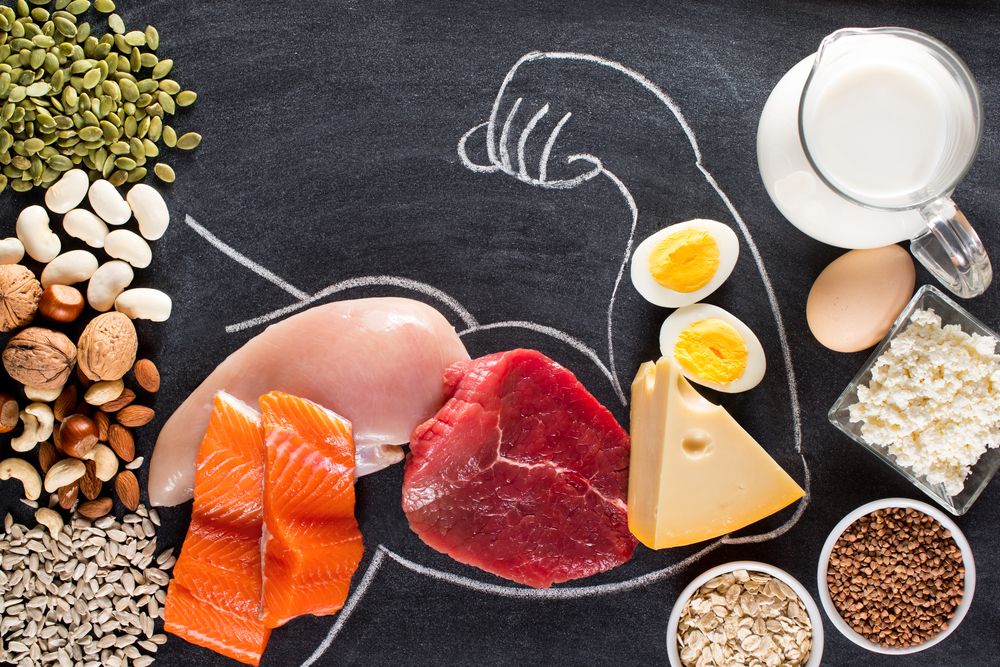Many prioritize weight loss, muscle gain, and overall health, and high-protein, low-fat foods offer a winning solution. These foods supply the building blocks for robust muscles, the energy to sustain you, and the satisfaction to stave off cravings—all while managing excess fat.
Protein stands as a vital macronutrient for tissue repair, satiety, and immune support. While healthy fats have their merits in a balanced diet, moderation is crucial due to their calorie density, especially for weight management or loss goals.
Incorporating whole-food sources of high-protein, low-fat options into your diet not only aids in healthy weight management but also enhances overall health and well-being. These whole-food protein sources are brimming with essential nutrients such as vitamins, minerals, and antioxidants, making them an excellent addition to any meal plan.
For those seeking to elevate protein intake while maintaining a balanced fat intake, here are 25 top picks of high-protein, low-fat foods that seamlessly integrate into your diet, facilitating progress toward your health objectives. Introducing these foods into your daily or weekly meals can assist in shedding excess weight and sustaining long-term results.
1) Edamame
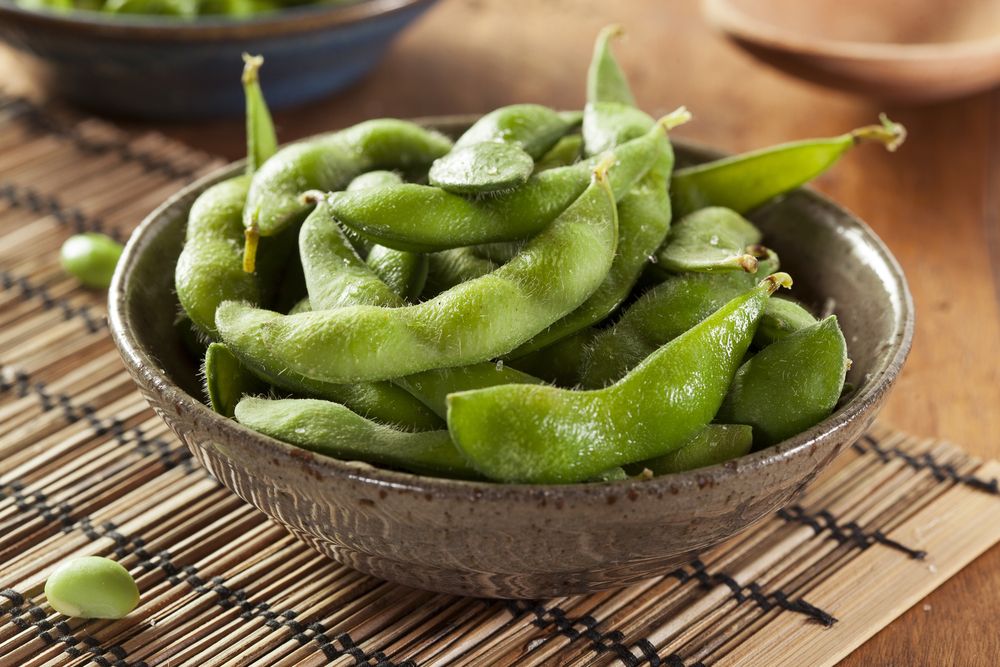
Per 100 grams:
- Calories: 121
- Protein: 12 grams
- Fat: 5 grams
According to Destini Moody, RDN, CSSD, LD, a registered dietitian and sports dietitian with Garage Gym Reviews, edamame is a unique plant protein source as it's complete, providing all essential amino acids vital for muscle growth and maintenance. Additionally, edamame boasts isoflavones, which are linked to antioxidant properties, enhancing overall health.
2) Beef Jerky
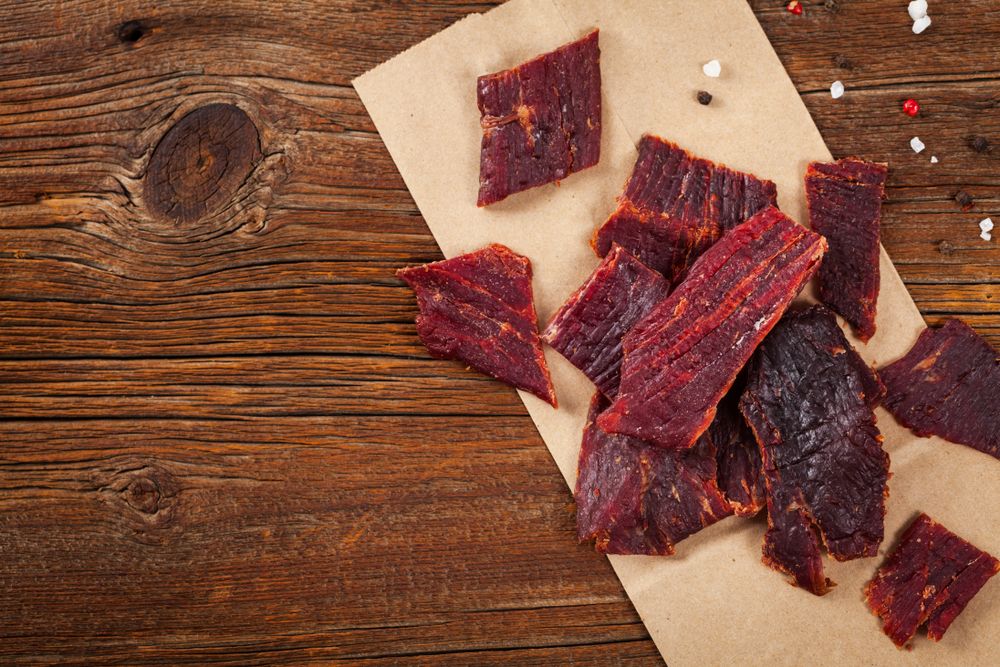
Per 28 grams:
- Calories: 60
- Protein: 10 grams
- Fat: 2 grams
"Beef jerky undergoes a drying process that removes much of its fat content, rendering it a convenient, protein-packed snack with comparatively low-fat content," clarifies Gianna Masi, CPT, RDN, a certified personal trainer and registered dietitian with Barbend. Opt for beef jerky varieties that are lower in fat and sodium whenever feasible.
3) Lentils
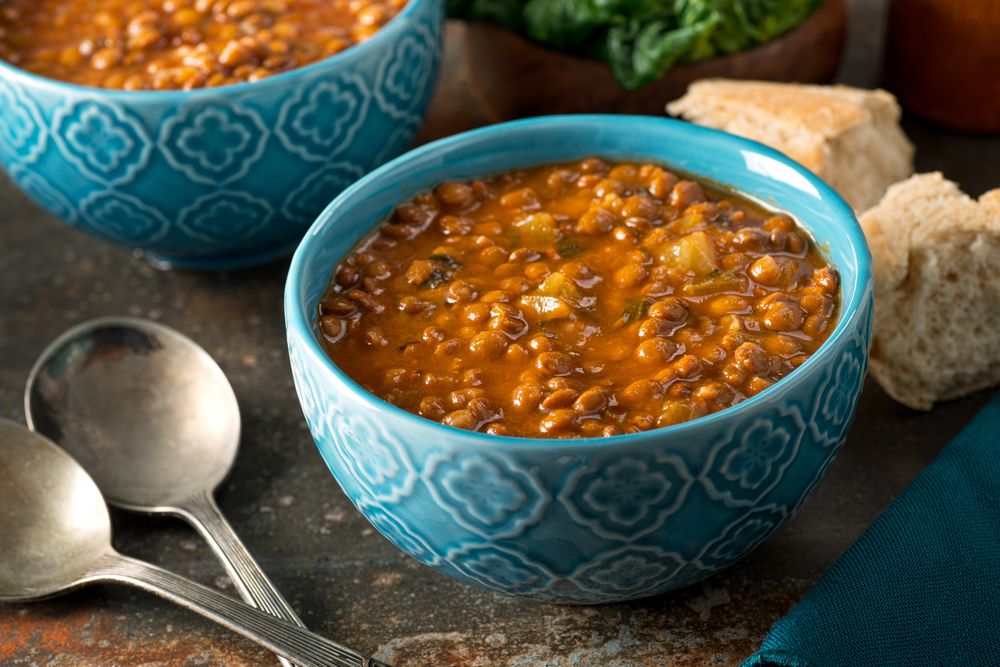
Per 1 cup:
- Calories: 116
- Protein: 9 grams
- Fat: 0 grams
Lentils stand as a robust plant-based protein source, abundant in fiber, iron, and folate. "Lentils, akin to beans, are both starchy vegetables and a carbohydrate source," explains Moody. "Nevertheless, they boast remarkable protein content, making them a superb inclusion in dishes such as salads and soups, offering a low-fat protein enhancement."
4) Turkey Jerky
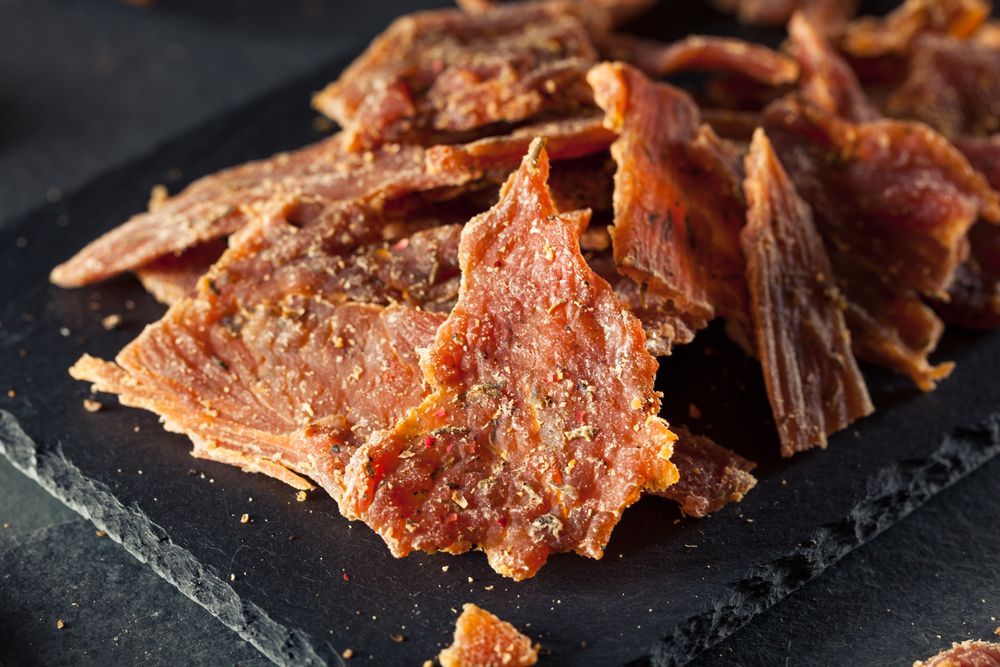
Per 28 grams:
- Calories: 60
- Protein: 6 grams
- Fat: 0 grams
Turkey jerky offers a leaner alternative to beef jerky while still delivering a savory and fulfilling snack to curb hunger between meals. "Turkey jerky offers protein with minimal fat, presenting a suitable option for individuals aiming to lower their fat intake while indulging in a savory and convenient snack," advises Masi.
5) Shrimp
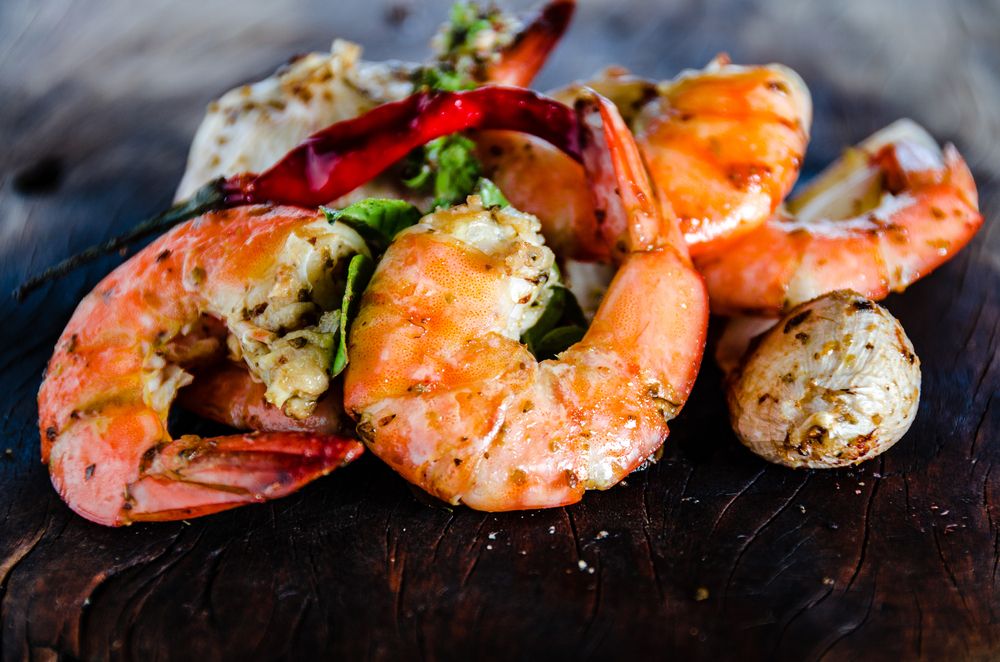
Per 3 ounces (85 grams):
- Calories: 84
- Protein: 20 grams
- Fat: 0 grams
Shrimp stands out as a low-fat protein option abundant in omega-3 fatty acids and selenium, vital for heart health and immune function. Moody highlights, "Shrimp ranks among the leanest animal protein sources available, boasting one of the lowest fat contents relative to its protein content. This makes it an excellent choice for pescatarians and those opting for non-red meat sources."
6) Top Sirloin
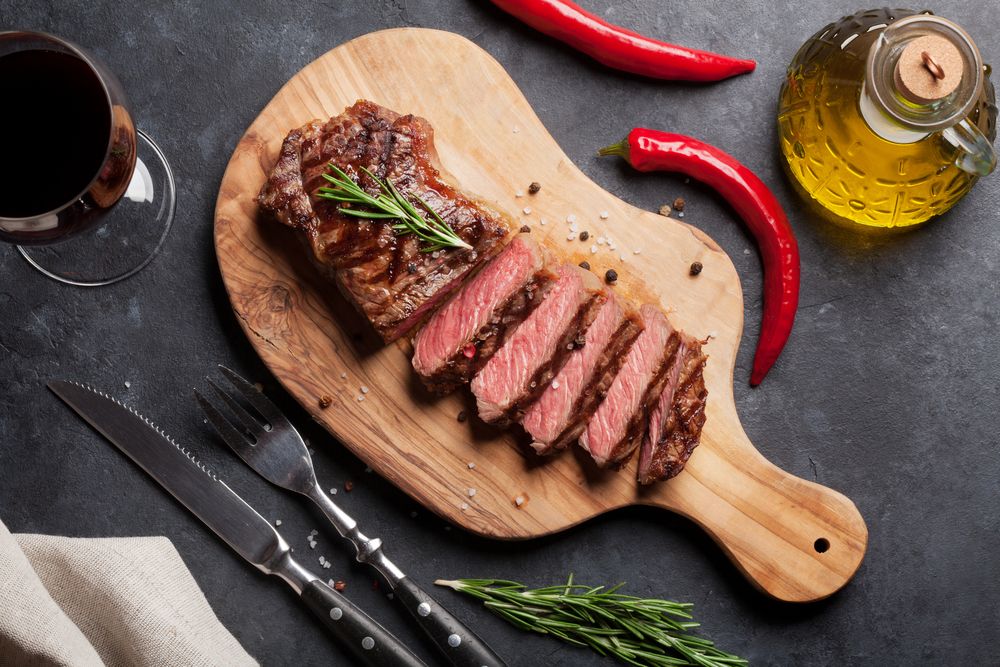
Per 100 grams:
Calories: 205
Protein: 21 grams
Fat: 13 grams
"Top sirloin provides a substantial protein content while being relatively lean compared to other cuts, making it an ideal option for individuals prioritizing flavor without compromising on lower fat intake," remarks Masi. Additionally, red meat selections like top sirloin are rich sources of iron, vitamin B12, and zinc, all contributing to overall well-being.
7) Pork Tenderloin
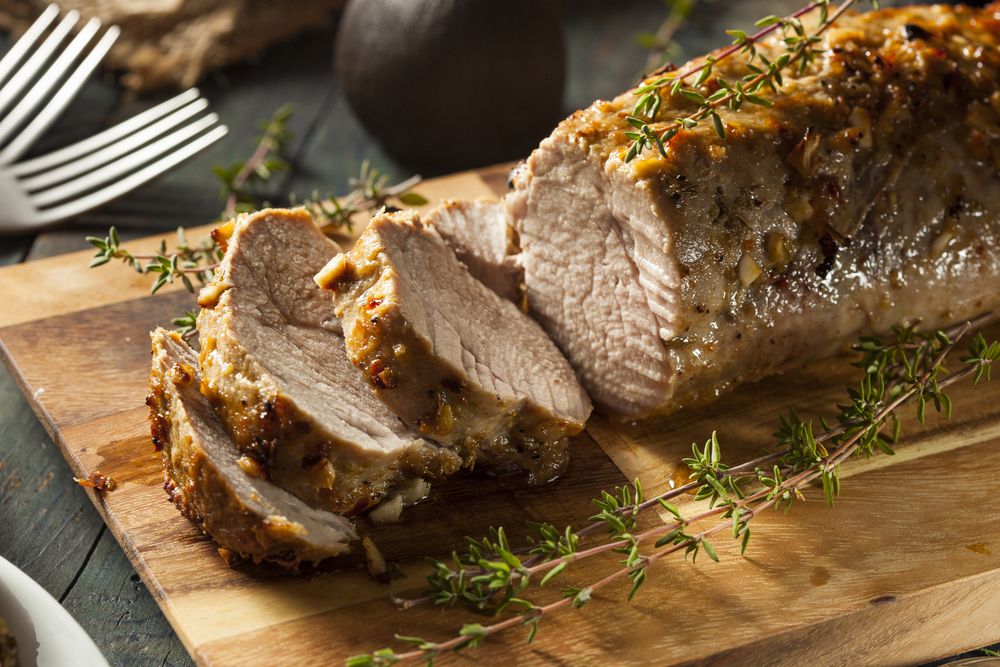
Per 3 ounces (85 grams):
- Calories: 122
- Protein: 22 grams
- Fat: 3 grams
Pork tenderloin emerges as a lean protein choice, offering a spectrum of essential vitamins and minerals including thiamine, niacin, and selenium. "Despite pork's negative perception, it might surprise many to learn that pork tenderloin contains less fat than chicken breast. This is because it originates from the pig's backside, which is a leaner section," explains Moody.
8) Cod
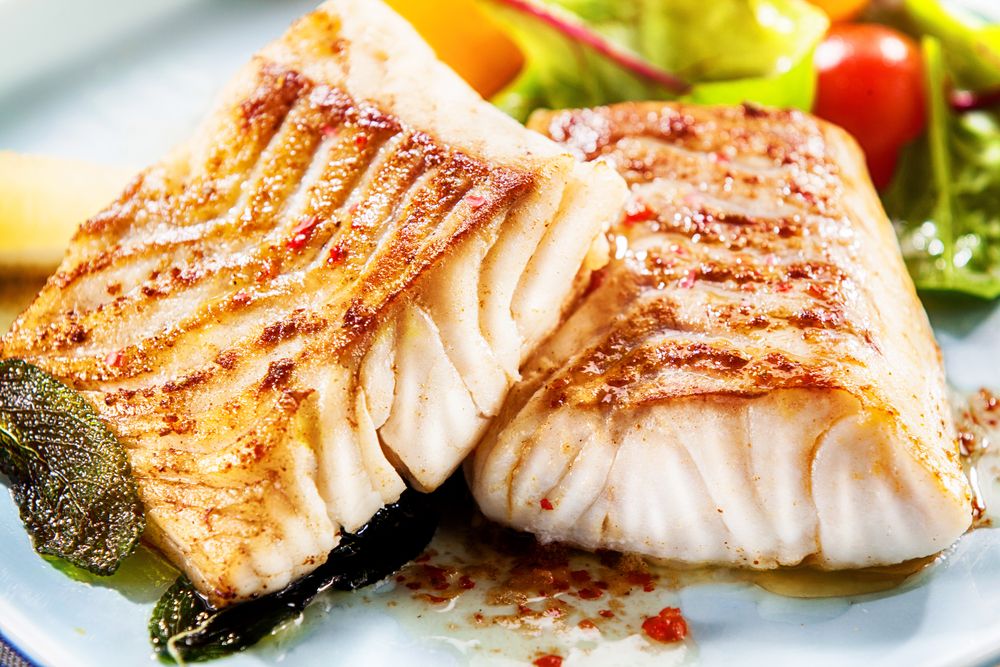
Per 100 grams:
- Calories: 71
- Protein: 15 grams
- Fat: 0 grams
Cod is a mild-flavored fish renowned for its low-fat and high-protein profile, along with its significant omega-3 fatty acid content, which promotes heart and brain health. Masi emphasizes, "Cod stands out as a notably protein-rich and lean seafood choice, offering a heart-healthy alternative for individuals seeking to minimize fat consumption."
9) Tilapia
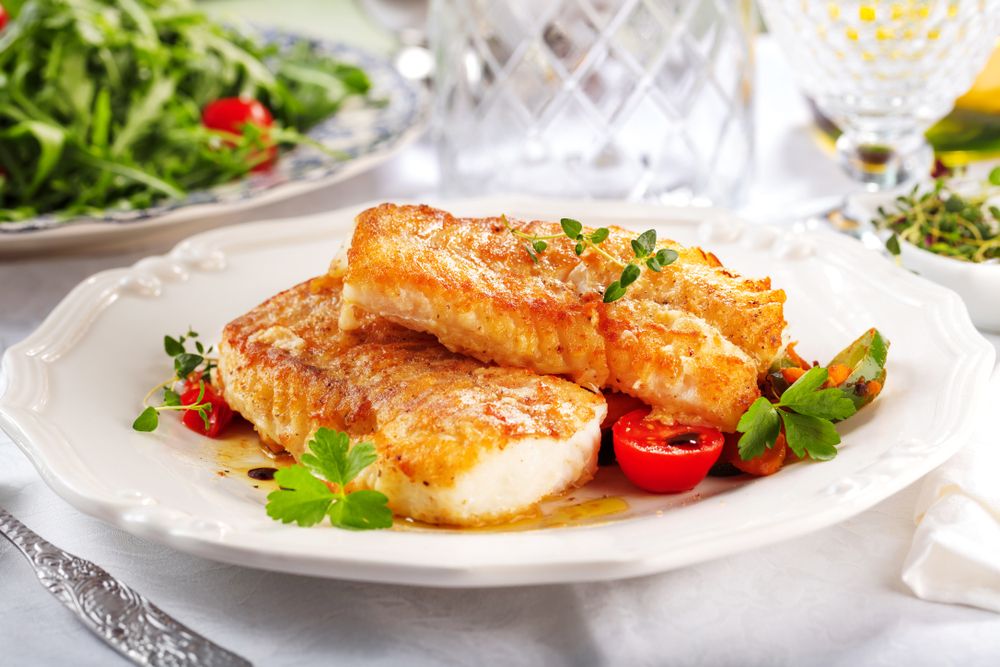
Per 1 fillet (87 grams):
- Calories: 111
- Protein: 23 grams
- Fat: 2 grams
Tilapia emerges as another lean fish choice, boasting high protein content and low calorie count. "Thanks to tilapia's mild flavor, it readily absorbs seasonings, allowing it to complement nearly any flavor profile," notes Moody. low-calorie
10) Flounder

Per 100 grams:
- Calories: 88
- Protein: 19 grams
- Fat: 1 gram
"Flounder stands out as a lean fish option with a subtle taste. Its low-fat content makes it an excellent choice for individuals seeking to uphold a nutritious diet without sacrificing flavor," explains Masi. Additionally, flounder serves as a rich source of essential vitamins and minerals, including vitamin B12, niacin, and phosphorus.
11) Tuna
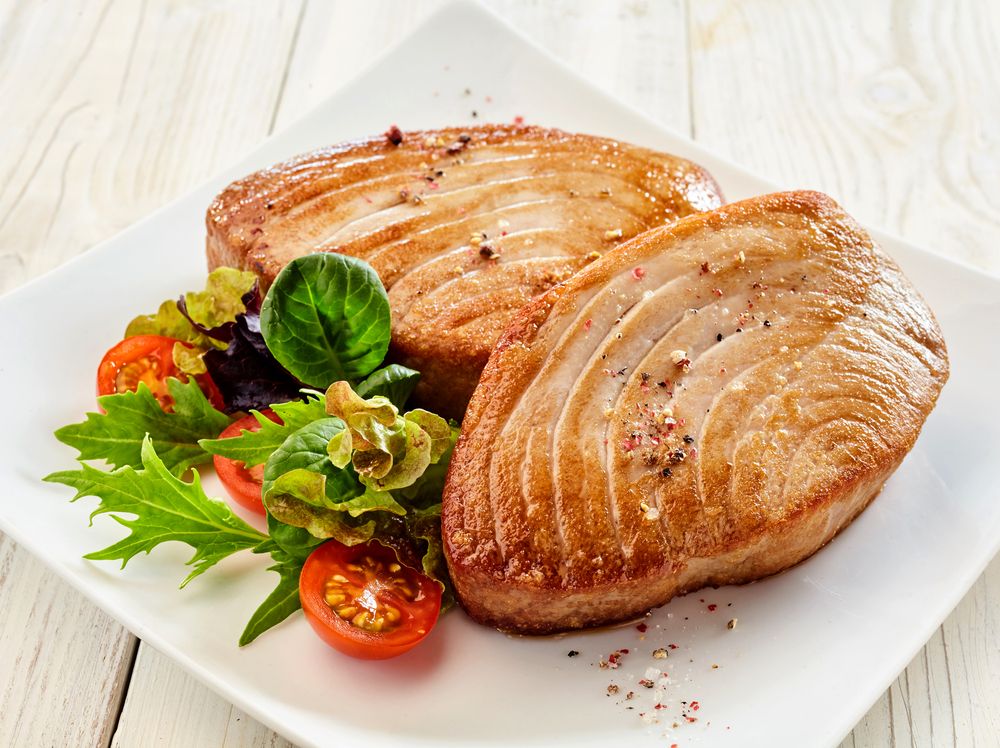
Per 3 ounces (85 grams):
- Calories: 132
- Protein: 28 grams
- Fat: 1 gram
Tuna stands as a reliable protein choice, offering nearly 30 grams per 3-ounce serving with minimal fat content. "Tuna is exceptional not just for its affordability but also its long shelf life, making it a convenient pantry staple for quick and nutritious meals," highlights Moody. This is why many dietitians recommend keeping tuna on hand for occasions when a reliable protein source is needed in a hurry.
12) Deli Meat (Chicken or Turkey)
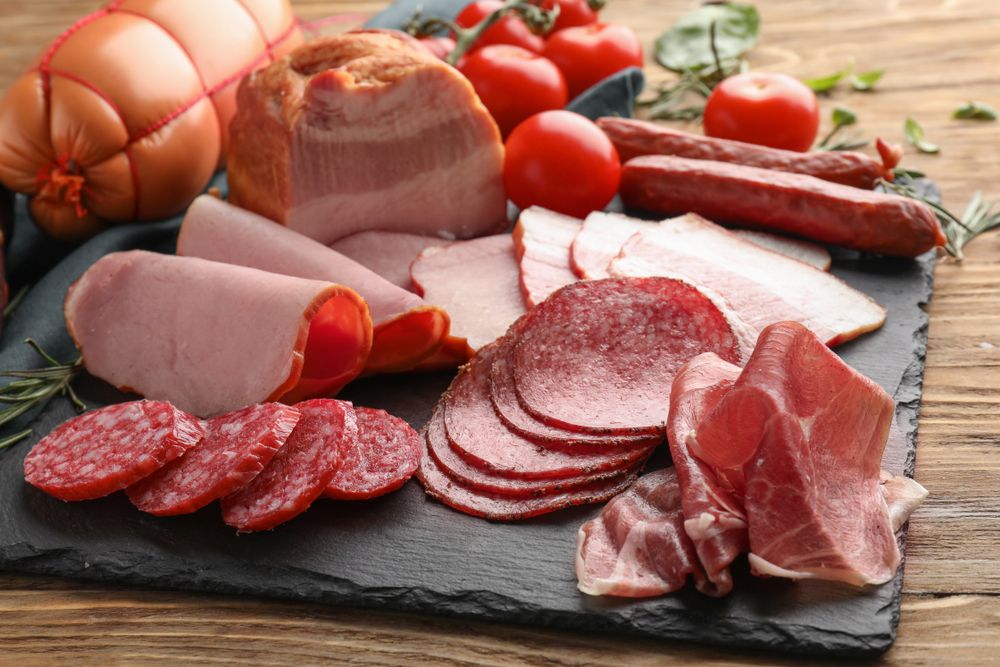
Per 100 grams:
- Calories: 107
- Protein: 23 grams
- Fat: 2 grams
Deli meat, particularly chicken or turkey, serves as a convenient protein addition to sandwiches and salads. Opt for deli meat varieties that are low in sodium and free from nitrate if feasible to maintain a healthier option.
Masi suggests, "Deli meats such as chicken or turkey can provide low-fat alternatives, particularly with lean cuts. Look for labels indicating 'lean' or 'low-fat' to ensure a healthier selection for sandwiches or salads."
13) Cottage Cheese
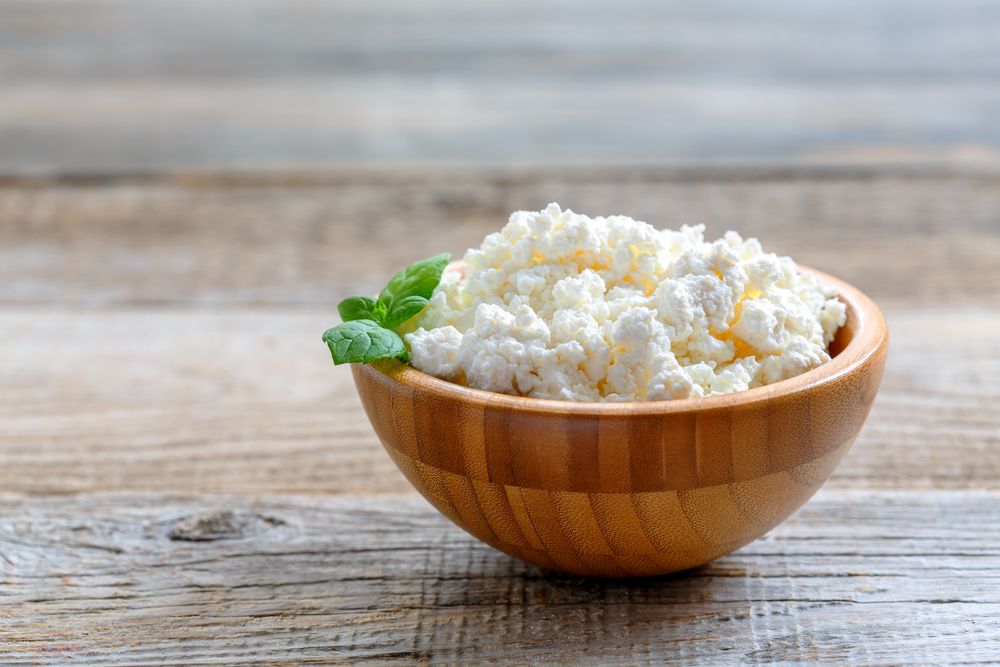
Per 100 grams:
- Calories: 98
- Protein: 11 grams
- Fat: 4 grams
Cottage cheese stands as a versatile and often overlooked protein source. Additionally, it serves as an excellent source of calcium, suitable for consumption on its own, or as an addition to smoothies, salads, or baked goods.
Moody suggests, "Cottage cheese can be enjoyed in savory or sweet dishes, such as blending it with spices for a dip or adding fresh fruit for a sweet post-workout snack. Opt for low-fat versions to maximize protein content per weight."
14) Turkey Bacon
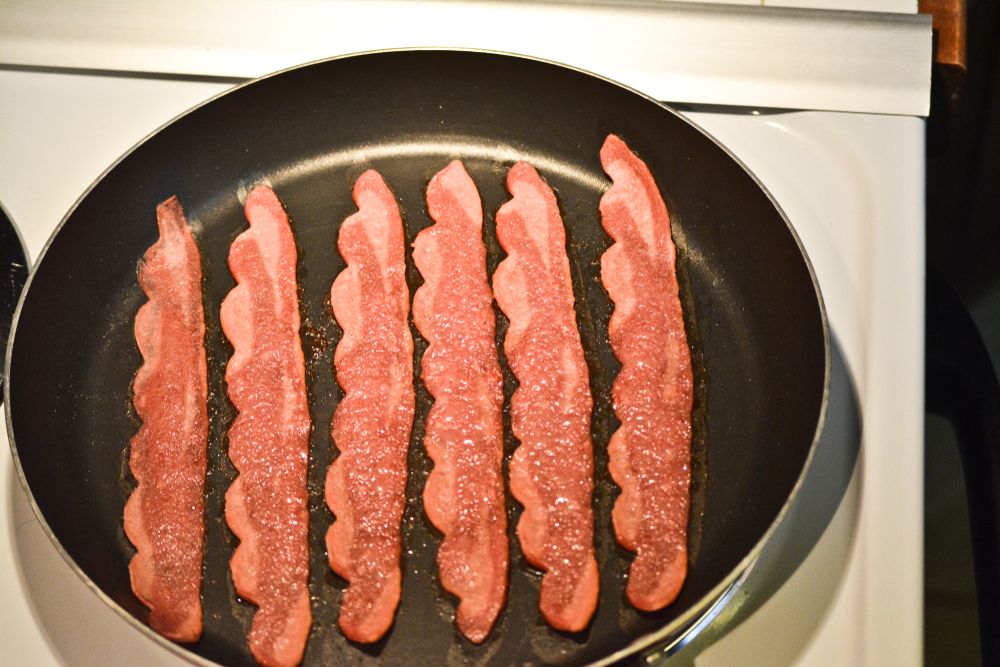
Per 100 grams:
- Calories: 107
- Protein: 16 grams
- Fat: 2 grams
Turkey bacon serves as a healthier alternative to traditional bacon due to its lower saturated fat content. While it does contain some fat, Masi notes that it generally has reduced saturated fat levels, offering a flavorful option for individuals aiming to lower their overall fat intake.
15) Non-Fat Greek Yogurt
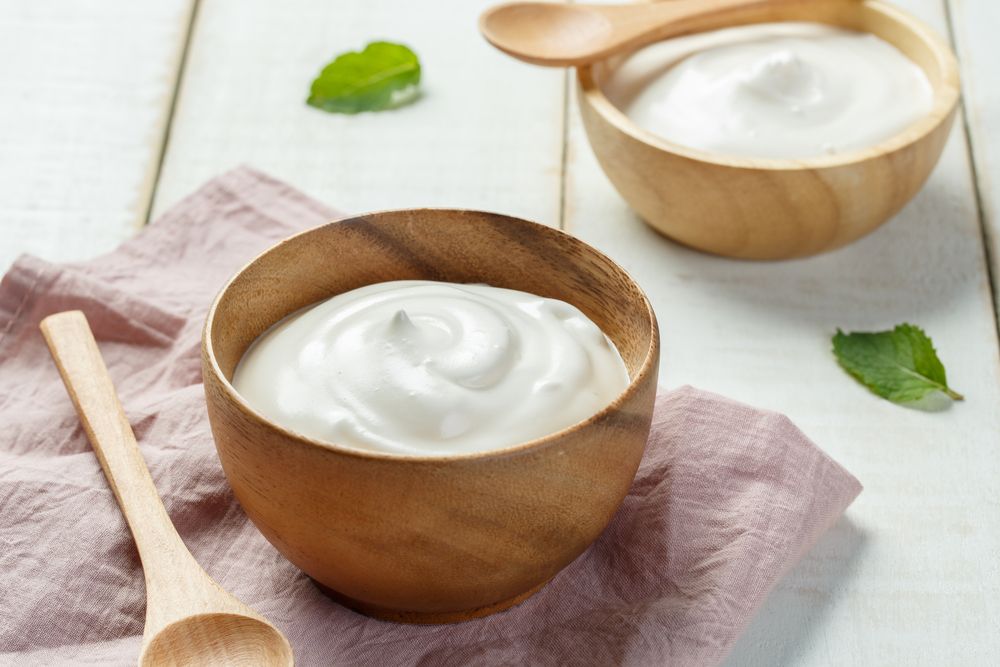
Per 100 grams:
- Calories: 59
- Protein: 10 grams
- Fat: 0 grams
Non-fat Greek yogurt stands out as a creamy and delightful high-protein snack, beneficial for gut health due to its probiotic-rich composition. Moody recommends incorporating plain non-fat Greek yogurt into your diet as a substitute for sour cream, allowing you to enjoy more protein with fewer saturated fats and calories.
16) Chicken Sausage
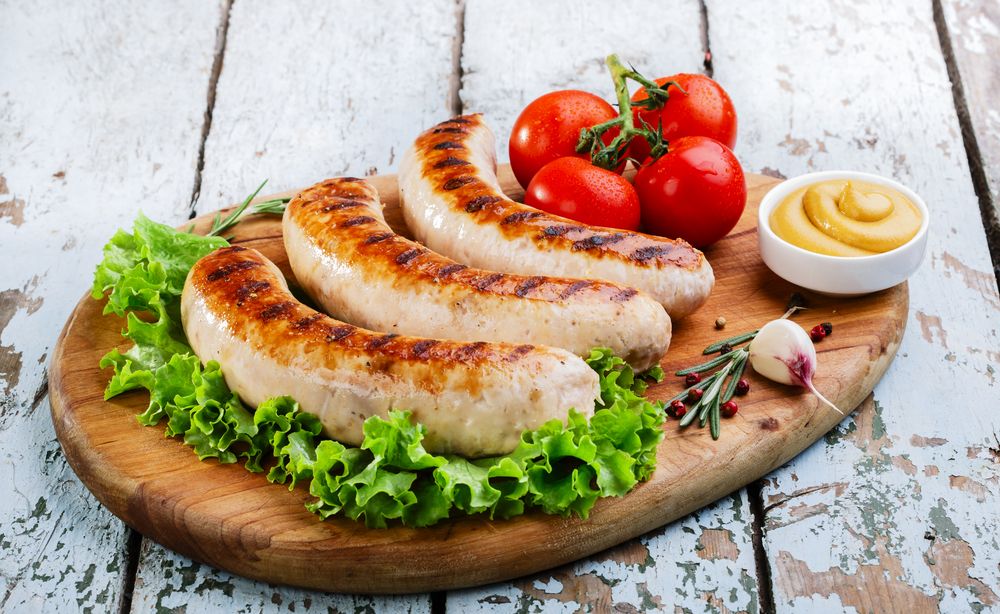
Per 100 grams:
- Calories: 146
- Protein: 19 grams
- Fat: 4 grams
"Chicken sausage presents a lower-fat alternative to pork sausage," notes Masi. "Several brands offer leaner chicken sausage options, like Bilinski or Alfresco." When opting for a healthier choice, seek out chicken sausage products with reduced sodium and fat content.
17) Whey Protein Powder
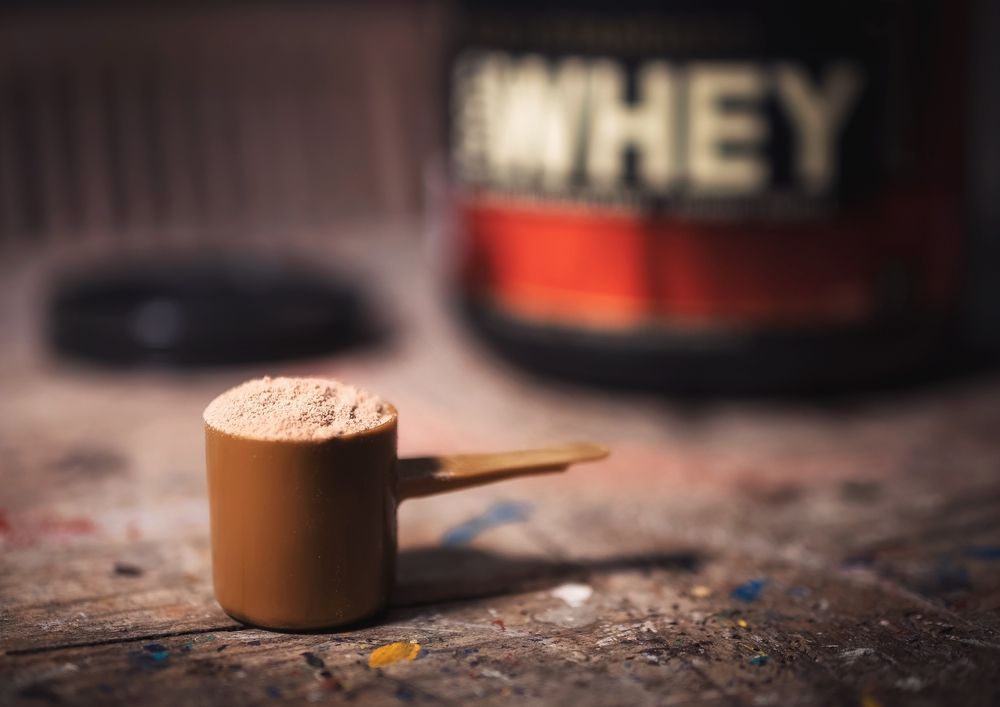
Per 25 grams:
- Calories: 90
- Protein: 20 grams
- Fat: 1 gram
Whey protein powder stands as an exceptionally convenient high-protein, low-fat option. Simply mix it with water or milk for a quick post-workout meal or snack.
"The nutritional content can vary depending on the brand, but the top protein powder brands typically offer at least 20 grams of protein per scoop with minimal fat and carbohydrates," explains Moody. "This is advantageous because protein powder is designed to supplement your protein intake without adding unnecessary calories from other macronutrients."
18) Seitan
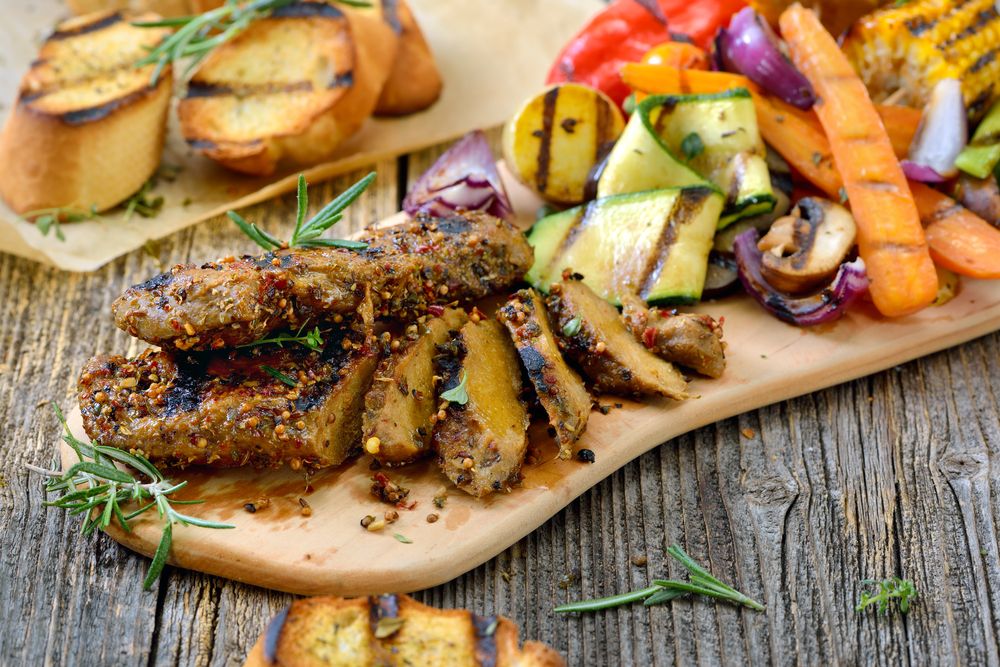
Per 100 grams:
- Calories: 82
- Protein: 12 grams
- Fat: 0 grams
Seitan, also known as "wheat meat," emerges as a plant-based protein option suitable for vegans. Crafted from gluten, its adaptability makes it an excellent meat substitute in various recipes. "Seitan boasts natural low-fat content and offers versatility for individuals adhering to vegetarian or vegan diets while managing fat intake," remarks Masi.
19) Tofu
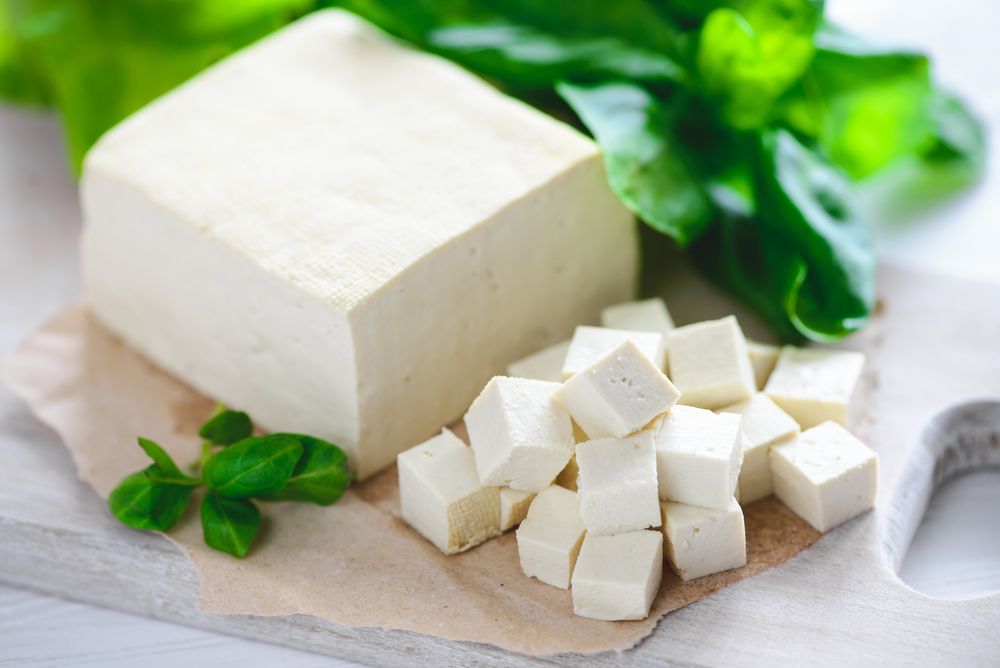
Per 100 grams:
- Calories: 76
- Protein: 8 grams
- Fat: 5 grams
Tofu, derived from soy, stands as a complete protein source rich in iron and calcium. "For individuals abstaining from animal products, tofu serves as a valuable option," notes Moody. "Although slightly higher in fat compared to some other items listed here, tofu remains low in calories and packed with nutrients. Its versatility allows it to be seasoned and prepared to mimic various flavors while providing all essential amino acids."
20) Tempeh
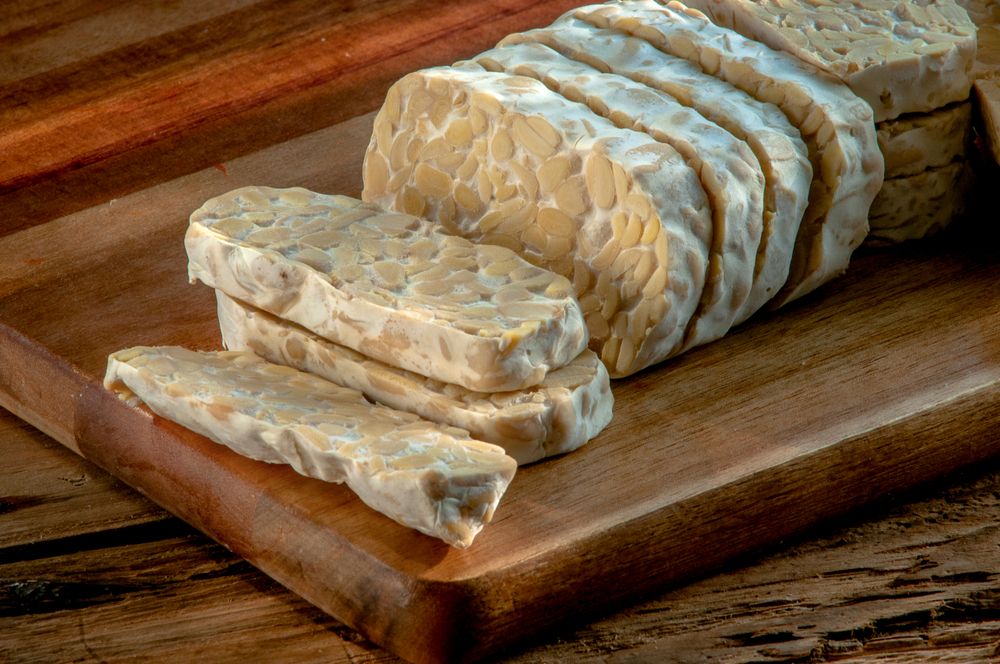
Per 100 grams:
- Calories: 190
- Protein: 21 grams
- Fat: 5 grams
Tempeh, derived from fermented soybeans, emerges as another low-fat soy-based protein source. Its fermentation process can enhance digestibility and support gut health. "Tempeh is a fermented soy product offering a reliable source of plant-based protein," explains Masi. "While it does contain some fat, it's generally regarded as a nutrient-dense, low-fat option for individuals seeking to integrate more plant-based proteins into their diet."
21) Bison
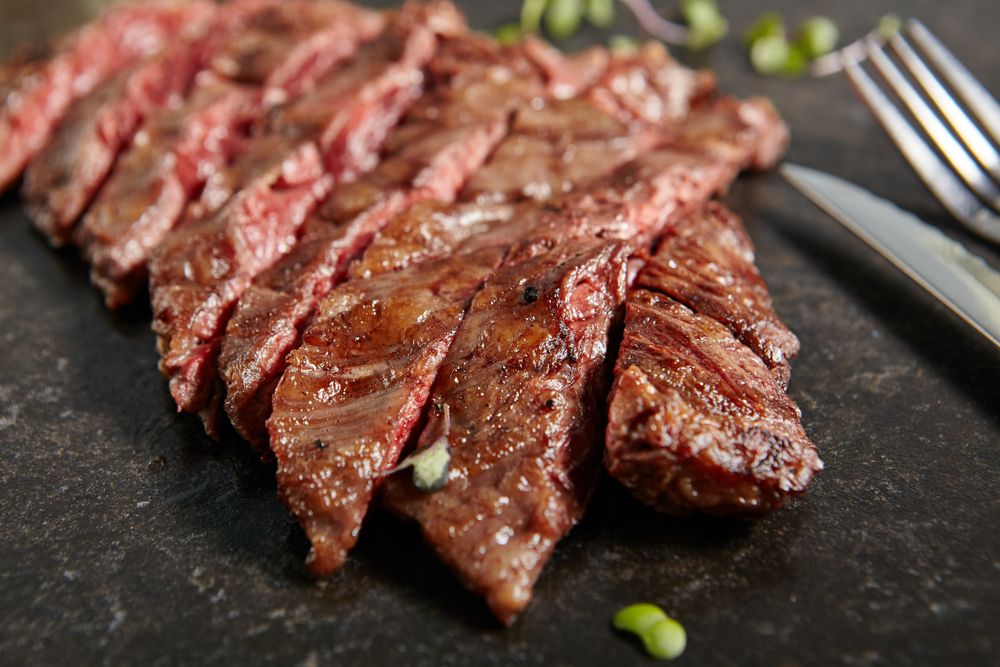
Per 100 grams:
- Calories: 146
- Protein: 20 grams
- Fat: 7 grams
Moody explains, "Similar to other game meats like deer, elk, and venison, bison stands as red meat22) Quinoa with considerably less fat compared to beef. This difference arises from the fact that wild game typically isn't raised in sedentary, grain-fed factory farm conditions, which tend to elevate the fat content in their meat." Bison offers a leaner meat option for enthusiasts, being lower in both fat and calories compared to beef.
22) Quinoa
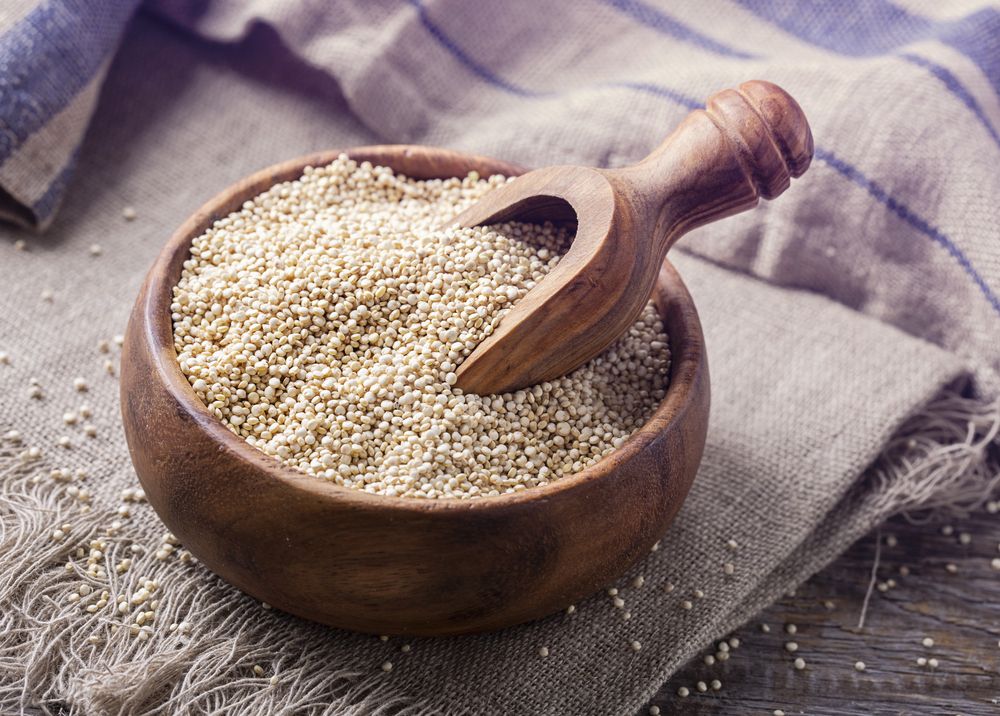
Per 42 grams:
- Calories: 140
- Protein: 6 grams
- Fat: 2 grams
Quinoa emerges as a complete protein source, encompassing all nine essential amino acids. Additionally, it boasts high fiber content and essential nutrients. Masi explains, "Quinoa stands as a whole grain rich in protein and low in fat. It provides a notable amount of fiber along with a variety of vitamins and minerals, rendering it a nutritious, low-fat option suitable as a base in salads, bowls, or as a side dish."
23) Egg Whites
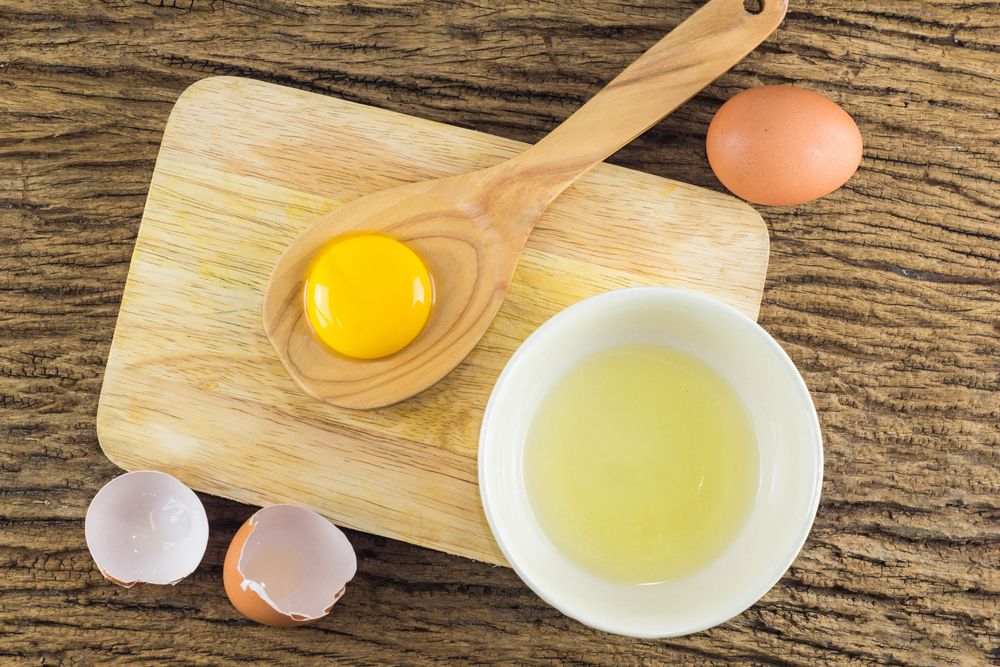
Per 100 grams:
- Calories: 52
- Protein: 11 grams
- Fat: 0 grams
"If you're aiming to decrease your overall fat intake while incorporating one of the highest-quality protein sources, egg whites are an excellent choice," suggests Moody. "Egg protein boasts high digestibility and is among the most abundant dietary sources of essential amino acids. Plus, without the yolk, egg whites contain virtually no fat." Egg whites offer versatility and can be added to omelets, scrambles, or baking recipes to boost protein without increasing fat content.
24) Chickpeas
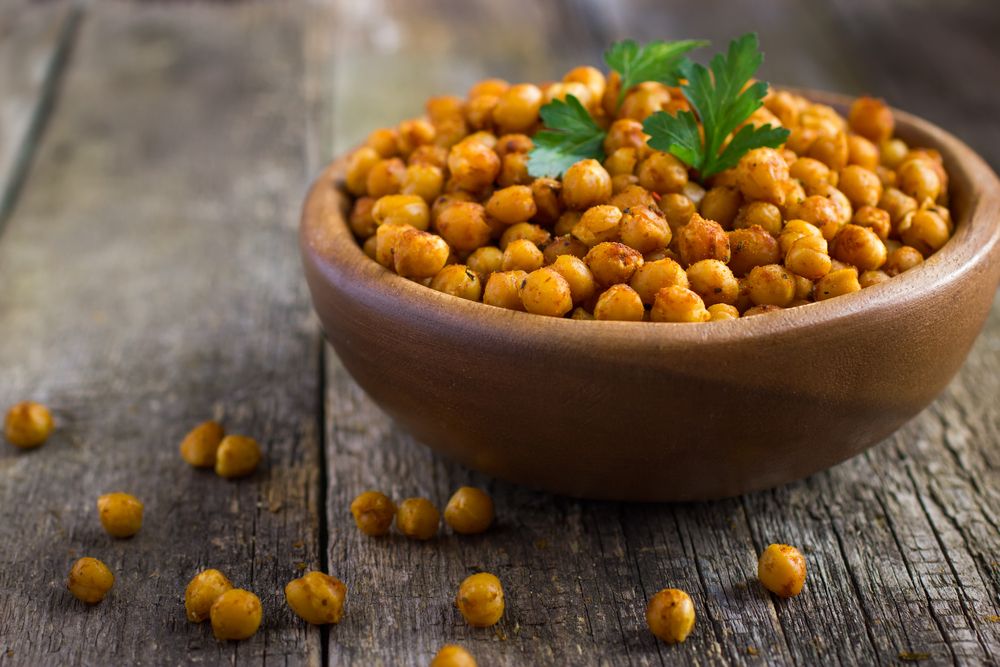
Per 1/2 cup:
- Calories: 120
- Protein: 6 grams
- Fat: 2 grams
Chickpeas, also known as garbanzo beans, are adaptable legumes rich in fiber and plant-based protein with minimal fat content. "Chickpeas represent a legume low in fat while offering a substantial source of protein, fiber, and assorted nutrients. Their versatility allows them to be incorporated into salads, bowls, or enjoyed as a snack, presenting a gratifying and nutritious choice for individuals prioritizing fat reduction," explains Masi.
25) Soy Milk
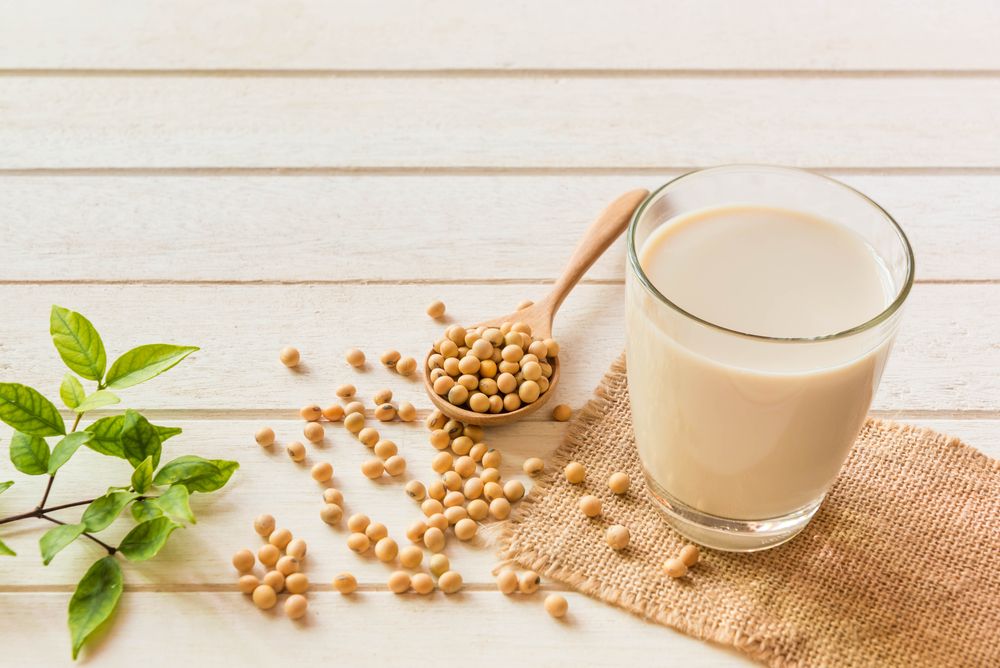
Per 1 cup:
- Calories: 131
- Protein: 8 grams
- Fat: 4 grams
Soy milk, a dairy-free option, serves as a commendable protein source frequently enriched with calcium and vitamin D. "Soy milk stands out as an excellent protein source for vegans and individuals with lactose intolerance," asserts Moody. "I favor soy milk as my plant-based milk choice because it closely mimics the macronutrient and amino acid profile of cow's milk compared to other plant-based milk alternatives."

